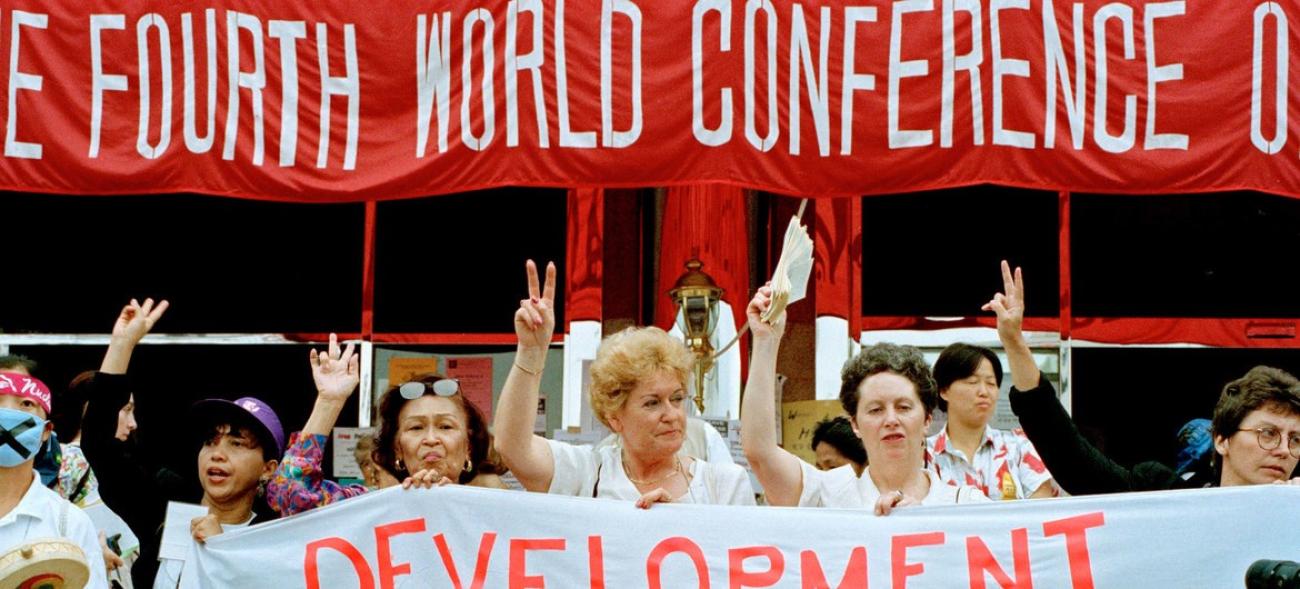Unless countries act now, the COVID-19 pandemic could erase recent “fragile progress” towards gender equality, the UN Secretary-General warned on Thursday, urging governments to put women at the centre of recovery and response.
António Guterres issued the charge in a speech to a UN General Assembly high-level meeting to commemorate the 25th anniversary of the landmark Fourth World Conference on Women held in Beijing, China.
The Beijing Conference, as it is known, marked a significant turning point on the global agenda, making it clear that women’s rights are at the heart of equality and justice around the world.
But as the UN chief told the gathering, the Conference was also a “wake-up call” as these rights are still being denied, hindered and ignored everywhere.
“COVID-19 has emphasized and exploited the continued denial of women’s rights. Women and girls are bearing the brunt of the massive social and economic impact of the pandemic,” he said, speaking from the rostrum in the General Assembly Hall.
“Twenty-five years after Beijing, we are facing a women-led recession as women employed in the informal economy are first to lose their jobs,” Mr. Guterres continued, outlining the aftershocks of the pandemic. These include a “shadow pandemic” of gender-based violence, and an increase in early marriage and other abusive and repressive practices affecting women and girls.
“Unless we act now, COVID-19 could wipe out a generation of fragile progress towards gender equality,” he stated.
The Beijing Conference concluded with a groundbreaking Platform for Action, with commitments covering 12 areas of concern, such as power and decision-making, poverty, violence against women, education, human rights and discrimination against girls.
Since Beijing, major advances have been made in the global fight for gender equality, as various UN agencies have documented. In 1995, there were 12 women Heads of State and Government worldwide. Today, there are 22. Maternal mortality has dropped by nearly 40 percent during this period, more girls are now in school, and women are increasingly involved in peace processes.
However, this progress is not enough; plus, it has been slow, according to the Executive Director of UN Women, which supports countries in achieving gender equality and the empowerment of women.
Phumzile Mlambo-Ngcuka emphasized the need for women’s leadership, including young women, in efforts to build back better after the pandemic. “Women and the people of the world are demanding these changes”, she said in a pre-recorded statement.
“This is the time for disrupters, young and old," Ms. Mlambo-Ngcuka continued, saying it is time for actions to change the course of history for women and girls, especially women between the ages of 25 to 34 who are increasingly more likely to live in extreme poverty than their male counterparts.
The rights of women and girls are non-negotiable, the head of the UN Population Fund (UNFPA) underlined. Dr. Natalia Kanem called on leaders to “scale-up” action and investments.
“We urge you to back up words with deeds, and with funding for programmes and services that transform women’s lives,” she said, speaking from the podium. “Investing in women and girls is not just a question of rights; it’s also smart economics, with benefits to society many times the cost.”
The President of the UN General Assembly, Volkan Bozkir, appealed for everyone, everywhere to act now on behalf of the world’s women and girls so as to “level the playing field.”
Speaking in person, Mr. Bozkir appealed for top-level commitment to girls education, equal economic opportunities for women, and ending gender-based violence. He urged countries to “shift established norms” to create a more just world, and thanked civil society groups for bridging divides and filling existing gaps, particularly during the pandemic.
He also issued a call to girls worldwide, including his own granddaughters: “Know this: there is nothing that women cannot do”.


















